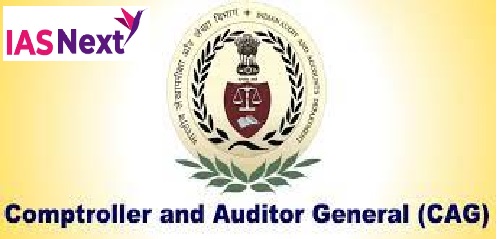CURRENT AFFAIRS
Get the most updated and recent current affair content on Padhaikaro.com
Comptroller and Auditor General (CAG) of India
- IAS NEXT, Lucknow
- 18, Nov 2021

Reference News:
1st Audit Diwas was celebrated on November 16. Audit Diwas is being celebrated to mark the historic origin of the institution of CAG and the contribution it has made to the governance, transparency and accountability over the past several years.
About CAG:
- The Constitution of India provides for an independent office of the Comptroller and Auditor General of India (CAG) in chapter V under Part V.
- The CAG is mentioned in the Constitution of India under Article 148 – 151.
- He is the head of the Indian Audit and Accounts Department.
- He is the guardian of the public purse and controls the entire financial system of the country at both the levels- the centre and state.
- His duty is to uphold the Constitution of India and the laws of Parliament in the field of financial administration.
Appointment and Term to Constitutionals Posts:
- The CAG is appointed by the President of India by a warrant under his hand and seal.
- He holds office for a period of six years or upto the age of 65 years, whichever is earlier.
Duties:
- CAG audits the accounts related to all expenditure from the Consolidated Fund of India, Consolidated Fund of each state and UT having a legislative assembly.
- CAG audits all expenditure from the Contingency Fund of India and the Public Account of India as well as the Contingency Fund and Public Account of each state.
- CAG audits all trading, manufacturing, profit and loss accounts, balance sheets and other subsidiary accounts kept by any department of the Central Government and the state governments.
- CAG audits the receipts and expenditure of all bodies and authorities substantially financed from the Central or State revenues; government companies; other corporations and bodies, when so required by related laws.
- He ascertains and certifies the net proceeds of any tax or duty and his certificate is final on the matter.
He acts as a guide, friend and philosopher of the Public Accounts Committee of the Parliament.
Reports:
- He submits his audit reports relating to the accounts of the Centre and State to the President and Governor, who shall, in turn, place them before both the houses of Parliament and the state legislature respectively.
- He submits 3 audit reports to the President: audit report on appropriation accounts, audit report on finance accounts and audit report on public undertakings.